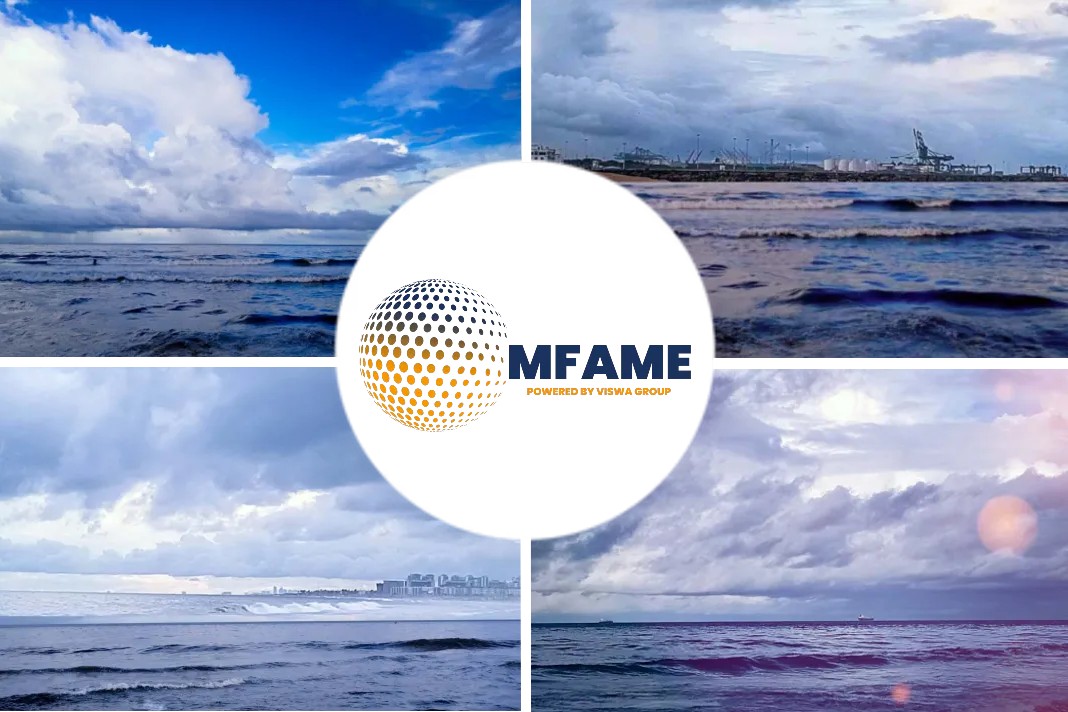- Spliethoff Group equip almost entire fleet with scrubbers
- Scrubbers chosen as they are economical and eco-friendly way to meet IMO 2020 Sulphur cap
- The group believes carriage ban is necessary to secure global enforcement of the sulphur cap.
- The group has installed over 20 BWTS on their vessels, to meet IMO’s Ballast Water Management Convention
Spliethoff to Equip Almost Its Entire Fleet with Scrubbers reports Splash247.
Scrubbers opted
Spliethoff Group, in a major project saw a number of the group’s vessels outfitted with EGCS, to be compliant with the 2020 sulphur cap.
The group intends to equip almost its entire fleet with scrubbers. The Spliethoff Group is one of the largest shipping companies in The Netherlands.
Currently, it owns and operates over 100 vessels, out of which about 30 ships were fitted with scrubbers.
Cost-effective way chosen
“Sulphur removal in after-treatment systems on-board is a cost-effective way to meet the upcoming sulphur regulations, to avoid the 8% extra CO2 emission needed for desulphurisation in the refinery process and has benefits to human health,” the group said.
As explained by Spliethoff, the group considered other options as well, such as LNG, marine gas oil or very low sulphur fuel. Finally, the company decided to invest in scrubbers.
The eco-friendly solution
“All compliance options have their advantages and disadvantages. Overall, we consider exhaust gas cleaning on board to be the most eco-friendly and economic solution to meet the stricter sulphur limits for the majority of our fleet,” the Spliethoff Group commented.
Why Carriage ban?
As a member of the recently created Clean Shipping Alliance 2020, the Spliethoff Group sees many advantages from scrubbers as compared to other available solutions.
Despite their high capital costs, scrubbers are technologically, operationally and economically effective ways to improve air quality and achieve the sulphur limit, Spliethoff believes.
The Spliethoff Group is also a member of the Trident Alliance, which supports the carriage ban on non-compliant fuels, adopted by the IMO’s Marine Environment Protection Committee (MEPC 73) in October 2018.
The group believes that this ban is necessary in order to secure global enforcement of the sulphur cap and ensure fair competition.
Prohibition welcomed
“We need all available means, and more, to enforce the sulphur limits and to have a level-playing field, as the economic gains of not complying are huge. A prohibition to carry fuels with a sulphur content exceeding 0.5% in fuel tanks for ships not equipped with exhaust gas cleaning systems is therefore welcomed by us, as there is no reason to carry high sulphur fuel in a vessel’s fuel tanks other than to use it”, says the group.
BWMC regulation
IMO’s Ballast Water Management Convention (BWMC) is the other environmental regulation hot topic. The regulation is an effective way for the shipping industry to halt the spread of invasive aquatic species.
On the other hand, many shipowners have faced difficulties when selecting the right ballast water management systems (BWMS) for their ships as not all approved systems are suited for all vessels.
When asked about BWMC and the company’s implementation strategy with regards to this convention, the Spliethoff Group said: that they have installed over 20 BWTS on their vessels.
The group also added that all types of BWTS have their owns advantages and disadvantages : energy consumption, filter and pump restrictions, holding time, muddy water and UV light transmittance, treatment of resistant life, explosive chloride gasses, etc.
“What works well on the ship A does not necessarily work well on the ship B. This is very much trade and ship dependent. The key in making a seamless transition towards BWC compliance is knowing your system and operational restrictions,” the company said.
Comment on expansion plans
Commenting on the potential additional fleet expansion plans, Spliethoff Group told that developing its fleet was a continuous process, however, increasing is not a goal in itself.
Last year, Spliethoff placed an order for six vessels at Zhejiang Ouhua Shipbuilding in China. However, the Chinese shipbuilder was officially declared bankrupt after filing for court receivership in May this year.
“We faced a setback in 2018 with the ordering of these vessels, however, this has all been sorted out and we are currently retendering these vessels,” said the company.
Did you subscribe for our daily newsletter?
It’s Free! Click here to Subscribe!
Source: Splash247


















